
Red Star Alliance: Resultism (30 Ways To Not Lose)
As mentioned in my previous articles in this series, I wanted to achieve success playing pragmatic football. Considering we’ve taken Red Star Wrexham from the VNL to the Championship in just three seasons, pragmatism doesn’t quite cut it as a good description. To use a term attributed to our lord and saviour Big Sam, we can only call it one thing: Resultism.
If pragmatism is the acceptance of who you are and making the best of what you’ve got, resultism takes this a step further and seeks to win at all costs despite any shortcomings. This article is a collection of ideas that form my approach to Resultism and is most definitely NOT a “How to FM20” guide. These are some things I have incorporated into my personal approach for getting lower league sides promoted where budgets are tight, but results are expected. I am far from a master of FM, so feel free to steal, adapt, or discard these ideas at your leisure…

1. Method. I remember an interview with Michael Jordan where he was asked how he managed to average over 30 points a game in the peak of his career. He broke down his approach very simply: by scoring three baskets a quarter there is six points, add two trips to the free-throw line twice per quarter and that’s another four points. This approach would give him the opportunity to score 30-40 points per game, in every game.
I think the Fantastic Four KPIs give us a simple method: (1) keep clean sheets, (2) score first, (3) work on set pieces, and (4) outwork your opponent. From four simple KPI’s I can set up my tactics, recruitment and training.
2. Defend. By trying to not lose games, we actually win games. At the time of writing, my Red Star Wrexham has played 166 matches won 74, drawn 48 and lost 44.
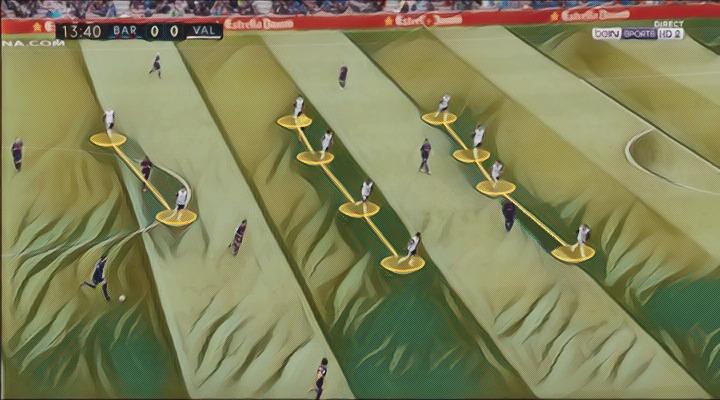
3. Talismen. Building around your 1 or 2 most talented players in your squad provides focus. Build tactics to get the best out of them and give your other players supportive roles. There is only one ball so prioritise who gets it.
4. Trust. Keep small squads and understand each and every player. As soon as you are out of the cup competitions, reduce the squad via loans or transfers in January. You don’t need a backup for every position and a little bit of variety gives you tactical options. For example, if you have four strikers in your squad you can have a Target Man, creative DLF, Poacher, and a pressing pest.
5. The Rock. Invest in defenders that have good technical skills and don’t make mistakes. Keep an eye on the “Mistakes leading to Goals” leaderboard and get rid of any player that appears on the list.
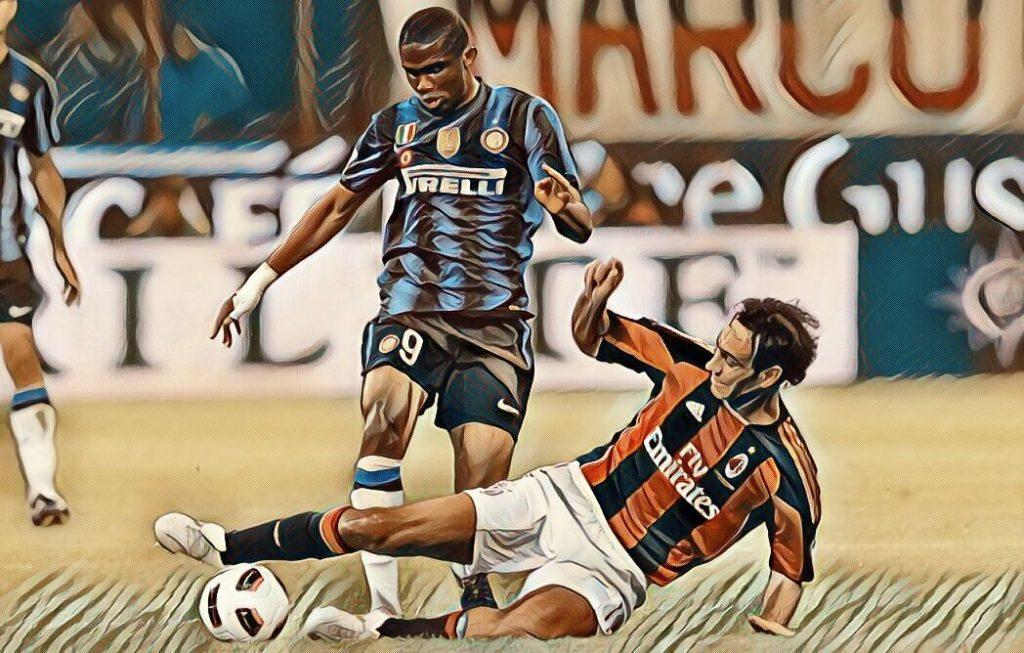
6. Eyeball. Watch targets in the match engine. Attend matches or ideally, get them in on trial. I don’t buy players based on their attributes alone. I want to see how he fits into our system and with the existing squad. If I want to sign a Target Man, I want to see him rising through the air like a gazelle to head it into the back of the net.
7. Stats. If you are a defensive team, most attacking and possession stats are not going to be in your favour so ignore them. Ryan recently shared a stat with the DTG team: Getafe is currently third in La Liga and has the worst passing percentage (by nearly 7%) in Europe’s Top 5 leagues. Let that sink in…
8. Tank Cups. The odds suggest that you’re not going to win the cup, so tank these matches. Use it as an opportunity to play your subs, players coming back from injury and kids.
9. Rotate Less. Places on the team sheet are earned. If you suck at training, you’re not playing. If you play and suck, it’s back to the bench with you. I rest players occasionally but am happy to keep with the same lineup unless someone is virtually dying from fatigue.
10. Set Pieces. Attacking and defensive, work on them. I mostly use the default routines but add extra set-piece training sessions 2-3 times per week and ensure we have quality corner, free kick and long-throw takers.
11. Smash. Target players with low fitness in the OIs. Literally send your blokes out to smash them. Sweep the leg, Johnny.
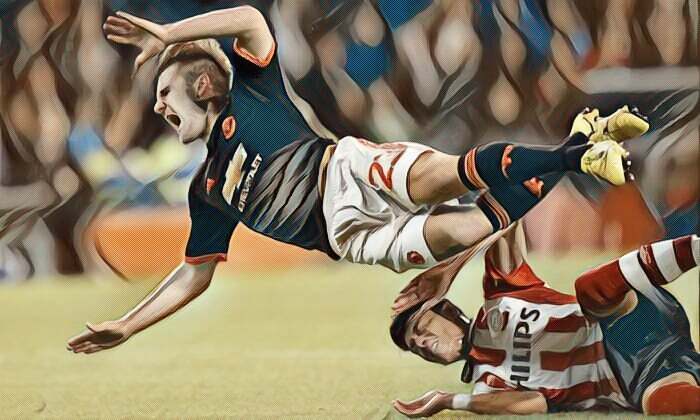
12. Full Backs. They are Defenders. If I see wing-backs or attacking full backs I see an opportunity to get in behind them and pull a team out of its shape. This is a Pulisism of the highest order. Pelham’s article says it all…
13. TM Rethink. Don’t think of a Target Man as a goalscorer. They are a focal point and goals are a bonus. Expect them to bring others into play. Stats to keep an eye on are Key Headers/Key Passes and Headers Won Ratio and don’t pay too much attention to their game rating.
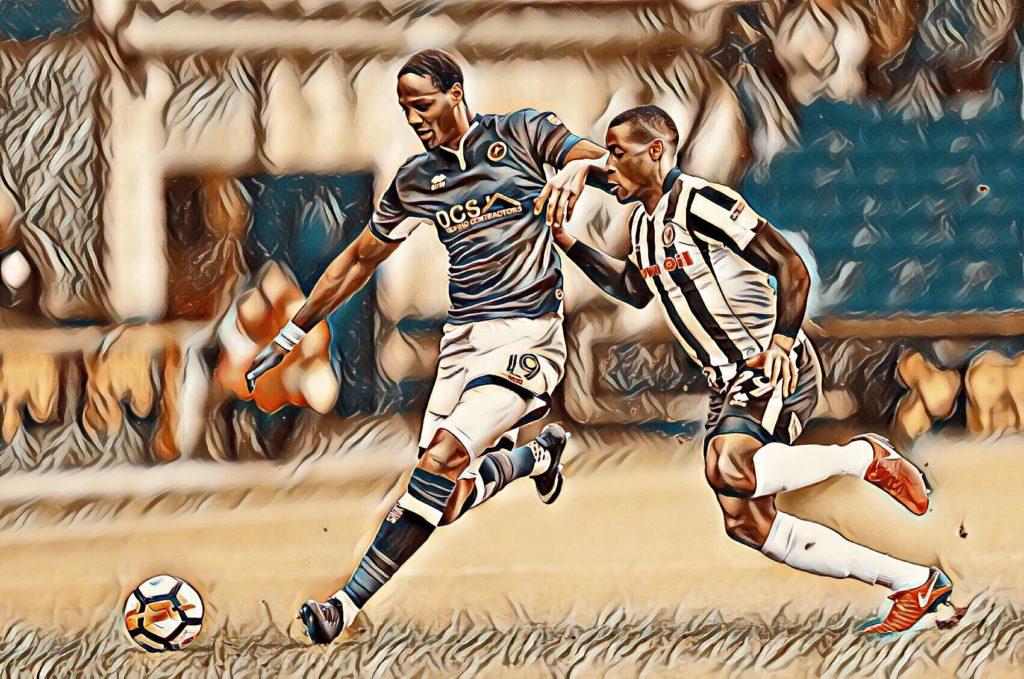
14. Checkpoints. Conduct checkpoints throughout the season to make sure you are meeting your objectives and identify areas to improve. I do this three times per season: 10 games in, the halfway point, and with 10 games remaining. I track our progress against the Fantastic Four and check the statistical leaderboards for our league to see how we are doing on a relative basis to our opponents. We play defensive football so I should have individual and team leaders in these categories, if not, I have work to do.
15. Upgrade. As a general rule, I don’t sign anyone who isn’t substantially better than the player already in that position. I rarely sign players based on potential until I think I have a good core group of players aged 23-27 in the squad. As legendary Hoosiers coach, Bobby Knight said: “potential just means you haven’t done anything yet”.
16. Early Bird. During the summer transfer window, I get my business done early. I extend the contracts of the players I want to keep and try and sell those I don’t want as soon as possible so I have the vast majority of my squad sorted for pre-season friendlies. I leave 1-2 spots empty for late transfer window business just in case a talent falls in our lap or we need to address a problem found in the first few matches of the season.
17. Mistakes. Rectify them as quickly as possible. Bad signing? Move the lad on. I’ve made hundreds of terrible signings over the years so just cut my losses and move on. Tactics? I create systems that don’t work as intended all the time. There is no shame in going back to the drawing board.
18. No Surprises. Know your tactical system completely. Every Instruction, every role, and how every player fits into it. This is another reason why I try and keep my squad small. That way when problems arise you can narrow down the root-cause of problems: usually poor player performance, a tactical weakness, or simply having inferior talent.
19. Highlights. How you watch matches is important. As I mentioned on a DTG Podcast, I start every FM session on “Full Game” for at least the first 15-20 minutes before switching to Comprehensive Highlights. This gets my brain in tune with the match engine. If I’m losing a match or can’t get my brain around what is happening, I switch to “full game”. This is an old Cleon-ism.
20. Vertical Scroll. Yes, I’m that kind of weirdo. Like Sarri flying drones at training at Napoli, I want to see how my players position themselves in a particular manner. I find that vertical scroll gives me a more compact view of the gameplay and positional spacing.
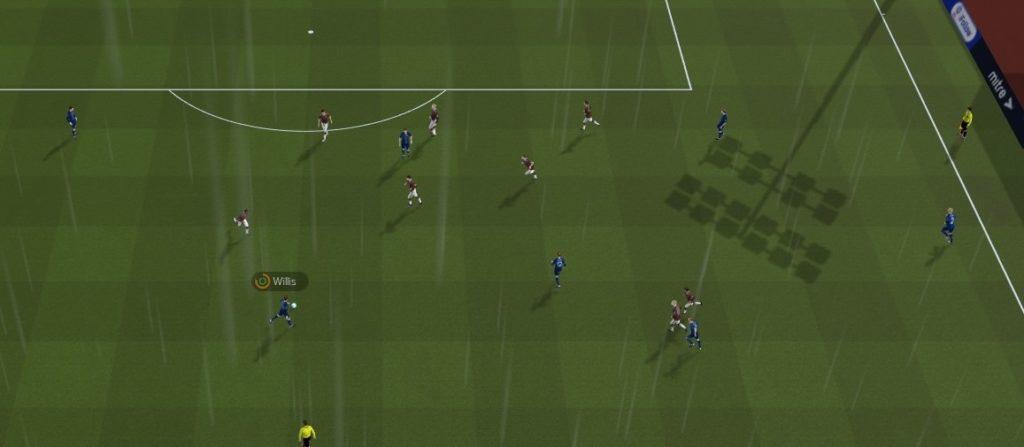
21. Simple Formations. Good IRL football managers (and even bad ones) have superior tactical knowledge than all of us. There’s a reason why formations like 4-4-2, 4-1-4-1, 4-2-3-1, 3-5-2, and 5-3-2 are standards. They work. I have used some weird formations but always start with a simple 4-4-2 or 4-5-1 shape and adapt from there. Find what suits your squad and stick with it. The basic roles in the game tend to work really well so don’t feel you need to use a Mezzala when a CM on Support will do the job.
22. Loans. Use loans to fill gaps in your squad but not Talisman-types. In our first season at Red Star Wrexham, we took young Giousis on loan from AEK and he quickly became our main goalscorer and creative threat. When he refused to extend his loan we spent months trying to adapt to life without him. Build your own core group of talented players and then bring in loan players to compliment them.
23. The Journeyman. You can do a lot worse than a 29-31 year old veteran who can do a job rather than an expensive 19 year old wonderkid who needs 2 years to develop.
24. Phil Neville. Similar to 23, every successful team in history had its water carriers. A multi-role, tactically astute, meat & potatoes utility player is worth their weight in gold. For example, Alfie Jones was arguably my most important player over the past two seasons as he played three different positions (CD, DM, CM) with an average rating of 7. He might be the last name I put on the team sheet, but he is always on it.
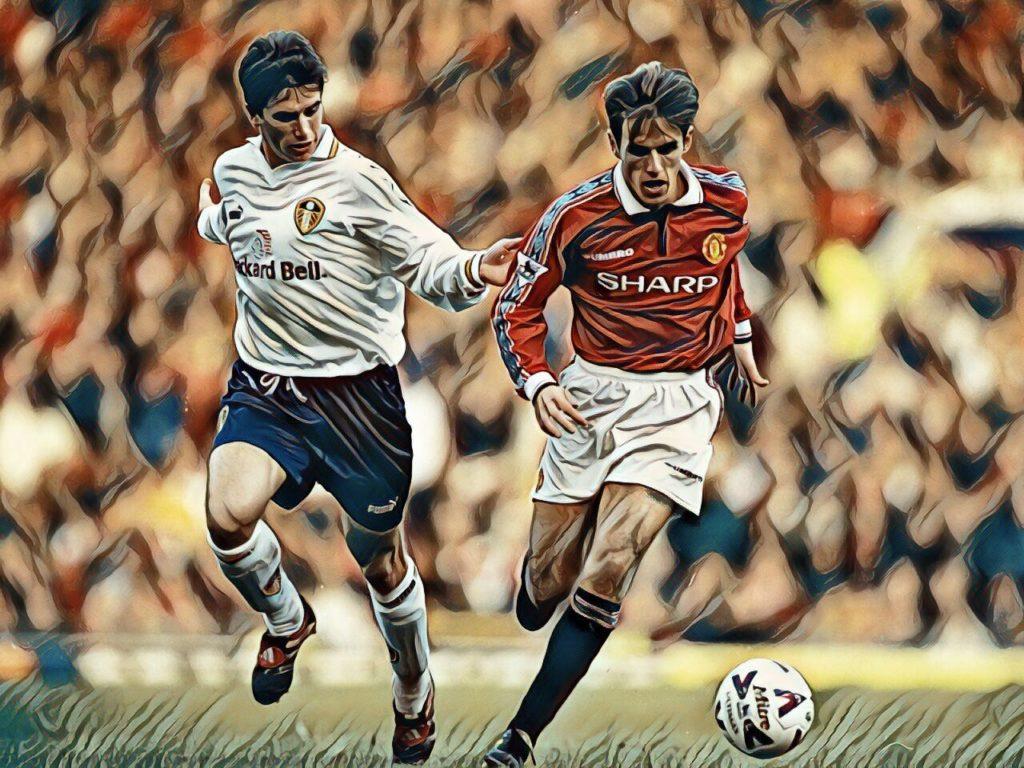
25. Selective Hearing. Know when to ignore or listen to your staff. We’ve all ignored suggestions from our assistants in matches but sometimes when things aren’t working in a match it pays to go to the Analysis screen and get a second opinion on tactical tweaks or substitutions. That “shoot on sight” suggestion just may do the trick if you’ve 20 minutes to go and you’re 1-0 down.
26. Renew vs Release. Following promotion, it can be a tough call to work out who should be given the opportunity in the higher division and who should be moved on. I always remember Sunderland gaining promotion in 2005 and Sean Thornton’s ridiculous Vanilla Ice celebrations in the dressing room afterwards. He was then sold to Doncaster. There’s no room for sentiment when its time to move players on.
27. Take Notes. While playing FM I usually google docs/sheets open. At the conclusion of every match, I update my Fantastic Four KPI spreadsheet and note down any specific recruitment, training or other things I want the squad to work on. This might seem like a lot to manage, but each of these things keeps me on point and replaced the notepad I previously used (abused).
28. Forget Youth. In order to save cash and keep our focus, we haven’t spent a dime on our youth development as we progressed through the leagues. Now we’re in the Championship with some decent revenue coming in we can start this work.
29. Recruitment DNA. With the thousands of players available in FM, focus your recruitment on a finite set of parameters. In my case, while I’m trying to mostly find players with the Red Star Alliance, I’m also recruiting only those players based on personality, aggression, work rate, determination, and height. There are dozens of blogs, forum posts and videos on this subject out there.
And ….
30. WWBSD. Always ask yourself, What Would Big Sam Do?

Note: I’ll likely be taking a hiatus from writing for a couple of months while I move continents and deal with some real-world priorities. I look forward to returning to blog the continuing adventures of Wrexham and the Red Star Alliance soon enough.